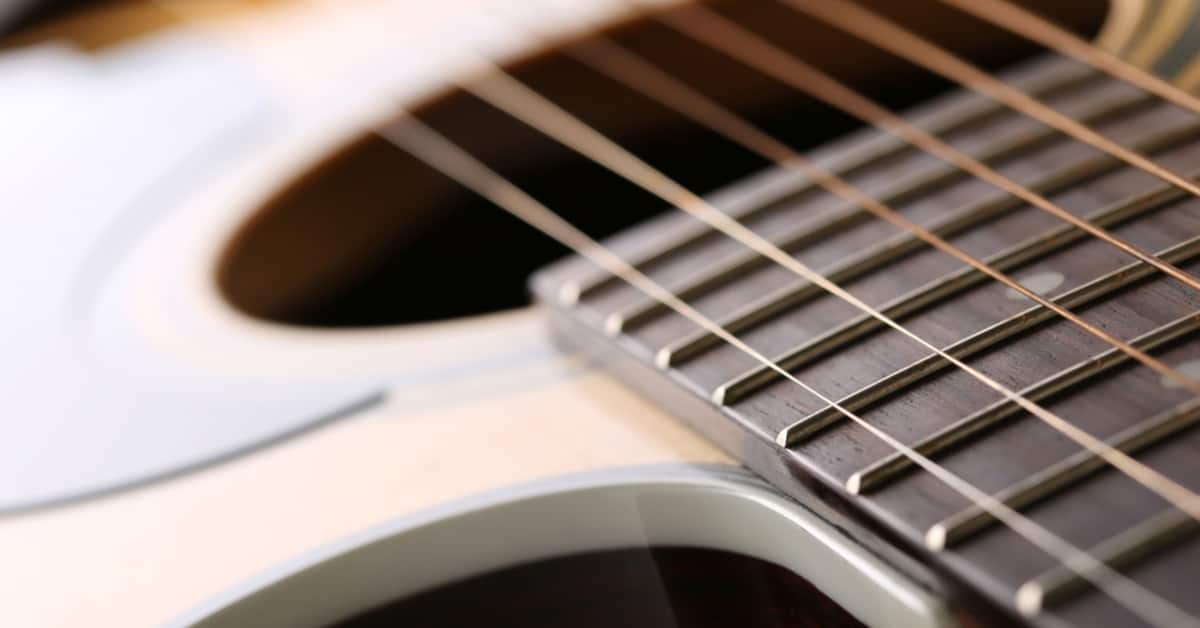Brazillian Rosewood is an exotic endangered timber, that has been used in guitar manufacturing for decades due to its resonance, comfort and resilience.
But these attributes of Brazillian Rosewood also make it popular for other types of manufacturing including furniture construction and more.
As a result of these properties, it has been harvested to the point of extinction and is now on the endangered species list.
Guitar manufacturers have started using other timbers in guitar manufacturing but for those individuals who own a guitar containing Brazilian rosewood, travel has become a bit complicated.
This article does not constitute legal advice, and it is important to do your own research before travelling to ensure the safety of your Brazillian rosewood guitar and compliance with the laws in all jurisdictions you plan to go to.
Answer To Whether You Can Travel With A Brazillian Rosewood Guitar
At this point in time, the international laws seem to indicate that it is technically possible to travel with a Brazillian Rosewood Guitar, but that import and export paperwork will need to be completed for each jurisdiction you travel through.
This may require evidence of the age, origin and legal sourcing of the timber used to make the guitar.
For a period of time manufacturers, we’re issuing the-is paperwork with all guitars containing Brazillian Rosewood, but if you have an older guitar there is a good chance this practice was not required at the time of manufacture and export or the paperwork is potentially lost between owners.
Though the restrictions pertaining to Rosewood guitars have been lifted in late 2019
I personally would avoid the hassle if you have any way around it because even though you may do your very best to comply with all relevant laws and legislation, there is no guarantee that the stewards of the localities you travel through will agree with your interpretation of the requirements and could lead to confiscation of your instrument.
If you are moving countries and want to take a very special instrument with you, then it may be worth the hassle, but even then, there is the potential that the process could get complicated.
Are Rosewood Guitars Treated the Same as Brazillian Rosewood Guitars?
For a period of time, it was very difficult to travel with any kind of Rosewood, and every instrument needed an instrument passport of sorts to state its validity and confirm its wood was legally sourced and exported.
Rules have since been relaxed to make it much easier to people with ‘finished musical instruments’ to travel that are made of Rosewood per see, but there is still some confusion about how these updates apply to Brazillian Rosewood specifically.
This article from the Australian Government suggests that even all products containing Brazillian Rosewood will still require import and export paperwork to be completed if you are taking a Brazillian rosewood guitar out of one country and into another.
Is It Illegal for Me to Own a Brazillian Rosewood Guitar?
There are different interpretations around how the ownership of a guitar is impacted by these rules. Some people suggest that ownership is in no way impacted by these laws, and the laws cover only the harvesting and export of raw materials.
This could mean that Brazilian rosewood guitars become very valuable as you will not be able to buy them in future.
There have been no actions by any government or authorities indicating the sale of Brazillian Rosewood instruments is prohibited, but this would only be feasible with a single jurisdiction. If you wanted to sell internationally, then you will need to do your homework on the paperwork and forms required, and risk potential complications in that process.
How To Maximize The Chance I Get My Brazillian Rosewood Guitar Through Customs
Firstly. do not try and hide anything.
Make sure you have researched specific laws of the country you are going into, and also what is required to leave your own country.
Having documentation of the wood used to make your guitar will be very beneficial as many jurisdictions will require you to evidence that the Brazillian rosewood used in the construction of your guitar was sourced legally.
Information about when the wood was arrested, where it was harvested, and proof that it was harvested legally will most likely be required.
If you have a Brazilian rosewood guitar of immense value (market or intrinsic value), I would personally not bother trying to travel with it. It is and will be complicated.
Many professional guitarists (e.g. Santana), even ones with prized guitars that they like to play with, have opted to use other guitars to tour with, to save the hassle.
Can I Travel With My Rosewood Guitar?
Yes, travel with Rosewood guitars is a straightforward process compared to that of travelling with Brazillian Rosewood.
Though you can never rule out a misunderstanding by border and customs agents, there are no laws pertaining to the documentation required to travel with Rosewood materials when they are in the form of a ‘finished musical instrument’.
Read the sources below for more detailed information.
References & Further Reading
https://www.pmtonline.co.uk/blog/2017/05/19/a-guide-to-the-cites-law-on-rosewood-guitars/
https://forestlegality.org/policy/us-lacey-act
https://cites.org/eng/app/appendices.php
https://www.pbs.org/wgbh/roadshow/stories/articles/2015/7/20/understanding-rosewood-regulations/
https://blog.taylorguitars.com/rosewood-musical-instruments-exempted-from-requiring-cites-permits

